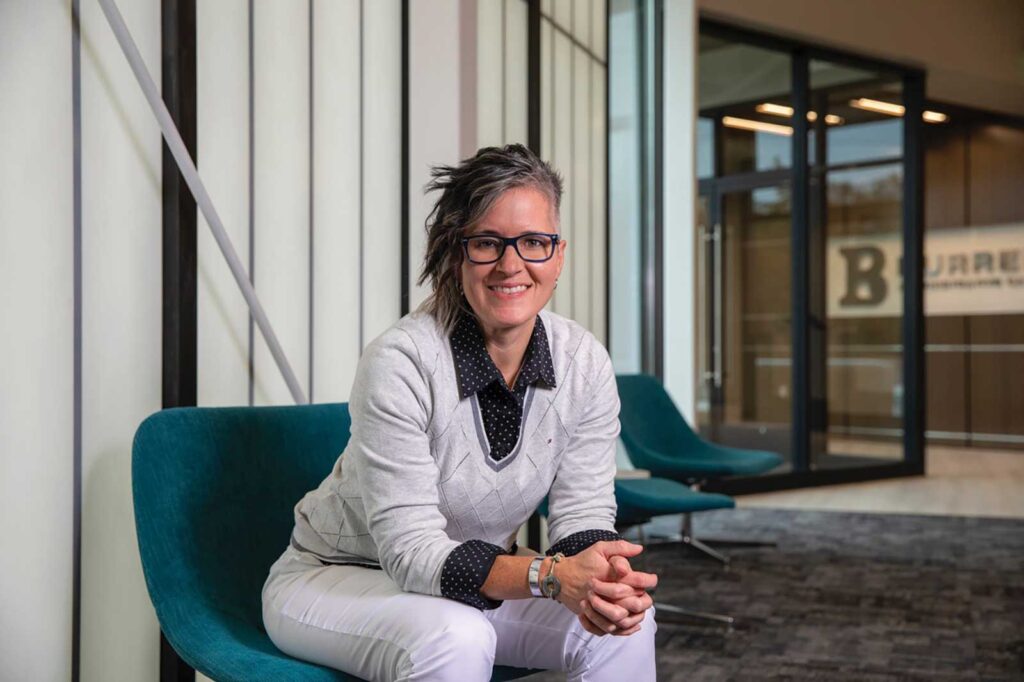A licensed psychologist’s advice on staying healthier, happier, and more connected during the winter months — even during the pandemic.
As temperatures drop, daylight hours get shorter, and the stimulating colors of fall fade to gray, you might find that your dopamine levels regularly decrease in the winter.
This changing of the seasons can bring out loneliness in us all — from a general gloomy feeling to the more serious seasonal affective disorder — and the holidays can bring feelings of grief over lost loved ones. Throw in a pandemic and canceled celebratory plans, and it’s a whole new ball game as far as “winter blues” are concerned.
Dr. Shelly Farnan, a licensed psychologist and system director of diversity and inclusion at Burrell Behavioral Health, says it’s normal to feel these changes — and she has some tips on staying happier and healthier during the winter months.
1. Tend to the Basics
Shelly’s first piece of advice sounds simple but is the foundation of staying mentally well — taking care of yourself physically. That means getting enough sleep, keeping a balanced diet, getting some form of exercise, and, you guessed it, drinking lots and lots of water.
“To give ourselves the best chance at overcoming loneliness, we need to do these things, and we have to be kind and gentle with ourselves,” Shelly says. “Self-care is not selfish — it is necessary.”
2. Make a Plan to Plug-In
Think about what communities make you feel happy, safe, and energized — and then reach out to them. Whether it’s through a phone call, a text, a Snapchat, or good old-fashioned snail mail, reaching out to people who make us feel good is a great way to accomplish goals and introduce positivity in our lives on a regular basis.
“We make a plan and then set that plan in motion,” Shelly says. “[We] reach out to them in a way that feels best to us and cycle back through . . . this helps us set a goal and take action.”
3. Express Gratitude
As the saying goes, you get what you give, and that certainly applies to expressing gratitude. Ask yourself who and what you feel thankful for and express it physically — through a phone call or by writing it down, for example. Not only does expressing gratitude help others feel appreciated, but it chemically makes your brain feel better.
“Gratitude is this unsung hero in emotional health and wellness,” Shelly says. “When you express gratitude, your body creates dopamine — this critical chemical which keeps us moving forward and feeling motivated.”
4. Prioritizing Play — Even as an Adult!
Although official playtime might have ended in our elementary school days, the benefits of doing something just for fun last our whole lives. Laughter and creativity can help your brain take a mental break, and you can reach this state through any number of fun activities, like music, a creative project around the house, or taking a walk with a loved one through a video call.
“Ask yourself, ‘When was the last time you lost track of time? When is the last time you did something you love without an actual purpose?’” Shelly says. “There is this myth that we play as kids and then you get old and work all the time, but we are still kids at heart. And [taking time to play] actually helps us achieve more!”
5. ‘Be Well’ Through Online Communities
In an increasingly virtual world — a trend that was happening even before the COVID-19 pandemic — we don’t have the same opportunities to connect in person that we used to. That is why Shelly’s last suggestion is to plug into online platforms that allow for that connection with others. She invites anyone to take advantage of Burrell’s own online community called Be Well. The community, which is on Facebook, focuses on ways to put brain science into practice and experience the benefits of mindful living through self-care and connection. Shelly is a leader of the community and has enjoyed helping others connect during a time of uncertainty.
“We’re having a ton of fun connecting with folks we’ve never even met before,” Shelly says. “Whoever feels disconnected and unplugged, come be well with us.”
Burrell Behavioral Health
Berrywood Center
3401 Berrywood Dr.
573-777-8300
Stephens Lake Clinic
1805 E. Walnut St.
573-777-7500










